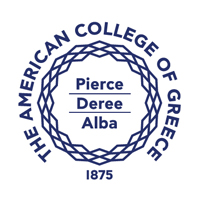The modern workplace is facing a profound sustainability crisis. A landmark epidemiological study revealed that over 120,000 deaths annually (in the U.S alone) are linked to how companies manage their workforce (Goh et al., 2016). This is the 5th leading cause of death in the U.S, surpassing diabetes. 10 workplace stressors, including long working hours, job insecurity, work-family conflict, and low organizational justice, contribute to this crisis. Research indicates that the private sector often privatizes profits while offloading societal and human costs onto the workforce and broader society.
Why does modern management oftentimes treat employees so poorly? Many trace this phenomenon back to corporate pathology—an obsession with short-term profitability, fueled by an excessive financialization of the economy. In essence, top and middle-level managers often engage in toxic leadership to boost their compensation.
Moreover, the discourse on workforce sustainability has gained significance amid concerns of overwork, stress, and well-being in the contemporary ‘New World of Work’ (Schlogl et al., 2021). ‘Sustainable work,’ encompassing working conditions, work-life balance, health, inclusion, training and development, and employability, aligns with European priorities, addressing demographic shifts and skilled worker shortages (ILO, 2022). This echoes the European Pillar of Social Rights and aligns with the ILO’s ‘decent work’ principles and the UN’s Sustainable Development Goals (Retkowsky et al., 2023). Amidst flexibilization and digitalization in the ‘New World of Work’ (Aroles et al., 2019), work dynamics, managerial approaches, and organizational paradigms are undergoing transformation. Coordinating work, collaboration, and the work-life balance has evolved amidst increased workloads and social isolation (Adisa et al., 2022). This shift renews focus on organizational aspects of work and employment, worker productivity, job quality, and health and safety (Eurofound, 2020), posing challenges to sustaining work in an uncertain post-pandemic world, which emphasizes ESG issues.
However, a brighter future for the workplace is possible. Driven by advancements in technology, AI, and a growing emphasis on sustainable and ethical practices, workplaces can transform in ways that promise not only environmental sustainability but also enhanced employee well-being. Organizations are increasingly recognizing the value of flexible work arrangements, remote work, and hybrid models that reshape the traditional office structure, reduce commuting-related stressors, support work-life balance, and even lower carbon footprints. AI-powered tools can relieve workers from mundane tasks, allowing them to focus on more meaningful and creative contributions. In preparing for the future of work, talent development, reskilling, and upskilling are becoming critical. In addition, today’s workplaces need to use data-driven insights as a compass for progress, not only to assess sustainability impacts but also to guide decision-making. To truly embrace sustainability in the changing world of work, profound cultural shifts are essential, fostering civility, inclusivity and psychological safety. Sustainable workplaces aren’t just a possibility; they are becoming a necessity in an increasingly conscious and dynamic world.
The following list indicates the research priorities and questions of the Mellon research team:
- Leadership and employee health and welfare
- Talent development for a future-ready workforce
- Culture change initiatives fostering sustainability
- Workplace incivility and (dis)respectful working environments
- Leveraging people analytics for sustainable workplaces
- Technological (AI) paternalism in the workplace
- The rise of the gig economy and its impact on job security and flexibility
- Equity and inclusion in the future of sustainable work
- Bias in AI and technology-driven decision-making
- Inclusive and sustainable work-life balance and remote and hybrid models
- Sustainable Human Resource Management practices
- The structure and compensation of the top management team
- Changes in the incentive design for employees
- New patterns of discrimination
Mission
In response to these challenges, we established the Future of Work Research Team. Our mission is to produce world-class research and provide actionable insights into sustainable (and unsustainable) workplace practices that promote employee well-being and health, foster talent development, and support the responsible integration of technology. Through collaborative research, data-driven analysis, and community engagement, we aim to study the future of work, by emphasizing both human and environmental well-being. Our goal is to measure, analyze, and understand the dynamics of workplace sustainability, uncover its root causes, and ultimately promote what many experts now refer to as ‘human sustainability.’ We strive to bring the social dimension to the forefront of the corporate ESG (Environmental, Social, Governance) agenda, a factor often overshadowed by the current emphasis on environmental impact or governance. While organizations rightfully tend to focus on tangible environmental aspects like deforestation or governance structures, our focus in the Future of Work Lab is on elevating this overlooked aspect, shining a light on how current workplace practices impact employees’ lives and contributing to a future of work where the sustainability of work along the employees’ life cycle and productivity are not at odds.
Vision
Our vision is to contribute to a sustainable future of work where innovation, employee well-being, and environmental responsibility coexist harmoniously, empowering organizations and individuals to thrive in a dynamic and equitable world that values and respects the wellbeing of all stakeholders. By creating evidence-based insights, we aim to raise awareness among business leaders and policymakers on the importance of healthier, more sustainable, and more humane workplaces.
